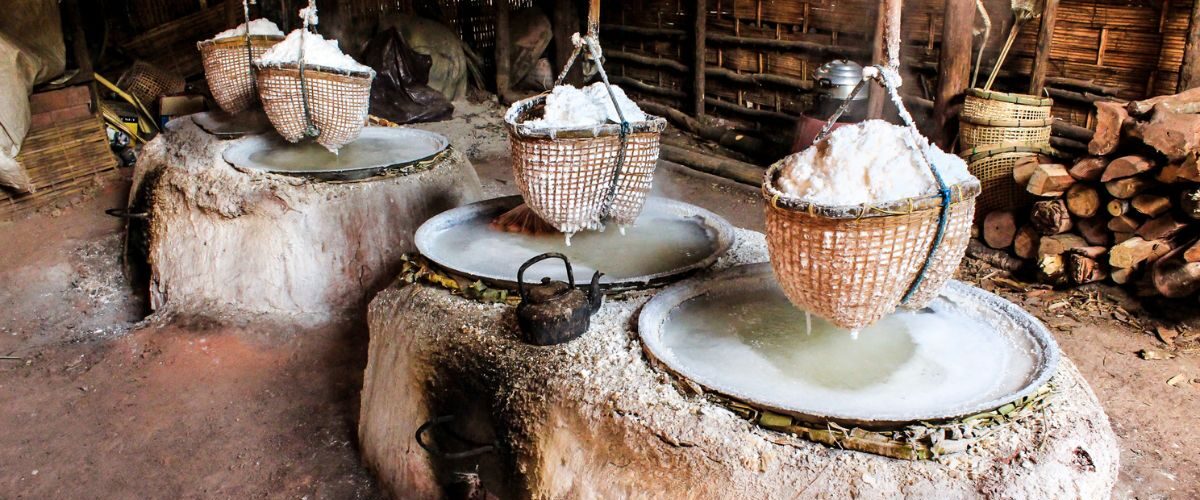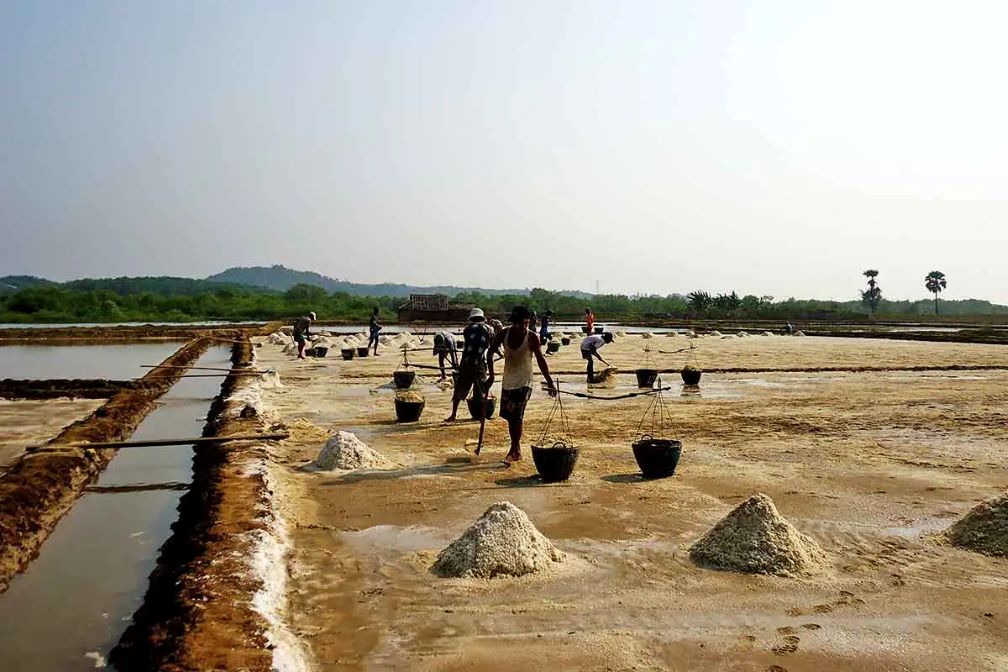CNI News
27 May 2024
Although the salt production in Mon State could be promoted more than last year, because the price has declined, salt farmers are finding it difficult reportedly.
Although the production cost was higher, because the price of salt was not higher, some salt farmers are facing losses and salt farmers are finding it difficult to produce salt any more in the coming salt production season, U Hla tin, a salt farmer from Thanbyuzayat Township, Mon State, told CNI News.
" Salt caught rain about three times in the hot season. And because the price of salt is low, it's not convenient. Salt caught rain three times in the hot season. But this year, the salt yield is 20,000 or 30,000 tons more than last year. But this year the price is low. If it goes on like that, a lot of salt can't be produced in the coming year. Moreover, the production costs including labor charges and much more money for diesel are so high, but the price of salt doesn't go up. We, salt farmers, are finding it difficult. It will be convenient only the price reaches over 200 kyats per viss." he said.

While seeing a stove boiling brine to get salt
Although the price of salt was 200 kyats and above per viss at a time like this last year, now the price is only 150 kyats per viss.
So, it would be convenient only if the price was above 200 kyats per viss because the production cost was high, said salt farmers. Although the salt produced in Mon State was being distributed to Karen State, Tanintharyi and Mandalay Regions, the use of salt has declined in Tanintharyi Region because the aqua product industry decreased there reportedly.
In the same way, when the salt from Mon State is bought, because the transportation charges are higher, salt buyers from Mandalay Region are buying only the salt from Ayeyarwady Region reportedly. So, Mon State's salt market was almost broken, and a large amount of salt had remained, said salt farmers.

While seeing a salt production workplace
Not only is the salt to be eaten, it was also necessary to build large factories such as paper mills that use tons of salt, Ko Naing Hu, a salt farmer from Thanbyuzayat Township, told CNI News.
" Because the Sittaung Paper Mill has been suspended, the supply of salt was about 20,000 tons reduced a year. If there were factories like this in our state, the factories wouldn't have to worry about salt as a raw material. Finished products could be sold to the government, companies or foreign countries as an export. If we have to produce salt only for the domestic market, we might find it difficult every so often." he said.
Although an MoU could be signed to export 30,000 tons of Myanmar salt to South Korea, about 5,000 tons only have been exported, and the remaining tons of salt have not been ordered reportedly.




